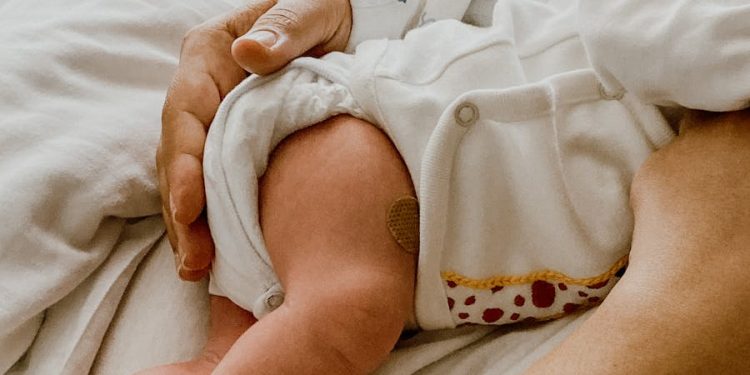Preparing for your baby’s arrival is an exciting time, but it can also feel overwhelming, especially when it comes to packing your hospital bag. One of the key things to prepare is your baby’s hospital bag, which should contain everything you need for those first precious days with your newborn. Having the right items packed will ensure you’re ready for any situation, so you can focus on enjoying those early bonding moments. This guide will help you pack all the essentials your baby will need, making sure you’re ready to welcome your little one in the best possible way.
1. Clothing Essentials for Baby
Packing the right clothing for your baby is crucial to ensure their comfort and well-being during the hospital stay. Since hospitals can be chilly, it’s important to have a variety of clothing options available.
- Onesies: Pack at least two or three onesies in newborn and 0-3 month sizes, as it’s hard to predict exactly how big your baby will be. Onesies with snaps are especially convenient for diaper changes.
- Footed Sleepers: Soft, footed sleepers are ideal for keeping your baby warm and comfortable, especially during the night. Look for sleepers with zippers or snap buttons for easy changes.
- Hat and Mittens: Newborns lose heat quickly, so packing a small hat to keep your baby’s head warm is essential. Mittens are also useful for keeping your baby from scratching themselves with their tiny nails.
- Socks: A few pairs of soft socks will help keep your baby’s feet warm. Footed sleepers may already have built-in feet, but having extra socks on hand is always helpful.
- Coming Home Outfit: Choose a special outfit for bringing your baby home from the hospital. Keep in mind that comfort is key, and make sure the outfit is weather-appropriate. A soft, simple outfit like a onesie paired with leggings or a sleeper is perfect.
2. Diapering Supplies
While most hospitals will provide basic diapering supplies, it’s always a good idea to have some of your own on hand just in case.
- Diapers: Pack a small pack of newborn-size diapers. You may not need a lot, as the hospital will likely provide some, but having extras on hand can give you peace of mind.
- Wipes: Sensitive, unscented baby wipes are best for a newborn’s delicate skin. Pack a travel-size pack of wipes that’s gentle and free from harsh chemicals.
- Diaper Cream: Diaper cream can be useful to prevent irritation or diaper rash, especially in the early days when a baby’s skin is adjusting.
3. Swaddle Blankets and Receiving Blankets
Swaddling can help your newborn feel secure and comfortable, as it mimics the snug feeling of being in the womb. Hospitals may provide a blanket or two, but having your own can make a difference.
- Swaddle Blankets: Pack two swaddle blankets made of soft, breathable material, such as muslin. Swaddle blankets can also double as nursing covers or burp cloths, making them versatile items.
- Receiving Blankets: Receiving blankets are perfect for cuddling, burping, or as an extra layer when needed. Pack at least one or two in case they get dirty.
4. Feeding Supplies
Whether you plan on breastfeeding or formula feeding, having the right supplies packed can make feeding your newborn easier.
- Burp Cloths: Babies spit up frequently, so having a few burp cloths on hand will help keep things clean. Pack two or three burp cloths for feeding times.
- Bottles: If you plan to formula feed or pump, bring a couple of baby bottles. Even if you’re breastfeeding, it may be helpful to have a bottle or two as backup.
- Nursing Pillow: A nursing pillow is not a must, but it can make breastfeeding more comfortable by providing support for both you and your baby.
- Nipple Cream: If you plan on breastfeeding, nipple cream can help soothe and prevent cracked or sore nipples during those early feedings.
5. Comfort Items for Baby
The first few days of life can be a big adjustment for your baby, so packing a few comfort items can help ease the transition.
- Pacifier: Some parents prefer not to introduce a pacifier right away, but if you’re open to it, packing a pacifier can help soothe your newborn during the hospital stay.
- Stuffed Toy or Lovey: A small stuffed toy or lovey can be comforting for your baby. Just be sure it’s soft and safe for newborns—avoid anything with small parts that could be a choking hazard.
6. Baby Care Essentials
You may not need all of these items immediately, but it can be helpful to have them packed just in case.
- Newborn Nail Clippers or File: Babies are often born with surprisingly long nails, and they can easily scratch themselves. Packing a baby nail file or clippers will help you keep their nails trimmed.
- Baby Lotion: Newborns often have dry skin, so a gentle baby lotion can be used to moisturize after bath time or during diaper changes.
- Baby Wash: If you need to give your baby a bath during your hospital stay, pack a small bottle of gentle baby wash. Many hospitals provide this, but having your preferred brand can be comforting.
7. Documents and Miscellaneous Items
Finally, remember to pack any important documents or miscellaneous items you may need during your hospital stay.
- Baby Book: If you have a baby book, consider bringing it to the hospital so that you can record any special moments or get the newborn’s footprints while they are being taken by the hospital staff.
- Pediatrician Contact Information: Make sure you have your pediatrician’s contact information handy, as the hospital may ask for it.
- Car Seat: Though not technically part of the hospital bag, a properly installed car seat is essential for bringing your baby home. Make sure it’s installed ahead of time so you’re ready to go when it’s time to leave the hospital.












